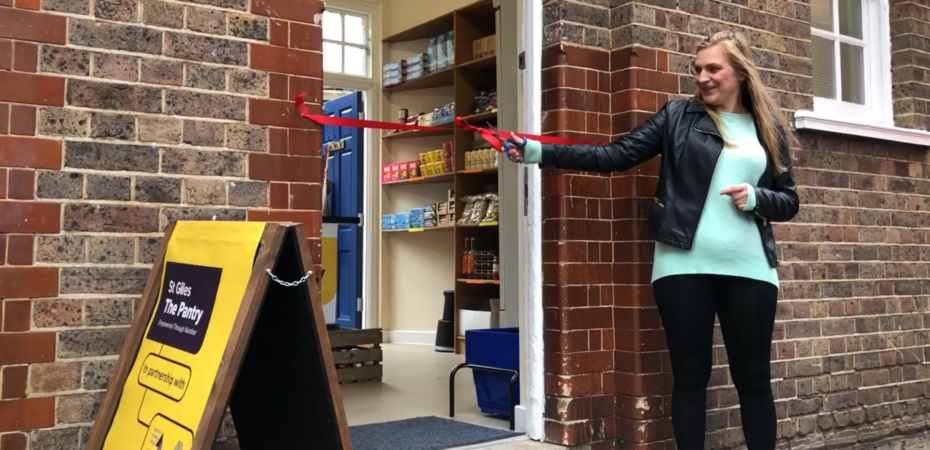Food pantries are popping up all over the UK, offering us high quality food at affordable prices. But they’re more than just a supermarket
In South Kensington, London’s wealthiest borough, people on lower incomes are struggling to buy good quality food. “Need in South Ken is very hidden,” says Alice Webster, community investment manager at Southern Housing Group, and a driving force behind the Ixworth food pantry.
A report by Public Health England (PHE) in 2017 showed that people in the borough were having difficulty accessing affordable food. PHE also found there was a link between poor diet and obesity.
The Ixworth Place estate is one of the largest in the borough with over 250 homes. Housing groups Clarion and the Guinness Partnership run other estates nearby. Alice saw an opportunity to create something truly unique. “There are around 900 properties in the area who would benefit from a pantry,” she said.
A dilapidated storage room on the estate had the potential to be converted. Led by Southern Housing, the three housing associations put funding into the project.
St Giles Trust came onboard to manage the pantry, with FareShare providing the food. Now a year old, the pantry is open three days a week and has over 100 members. The pantry operates on a referral-only basis. People pay £3.50 per household, per visit. Food is labelled in a traffic light system (red, amber, green), relating to availability and stock.
The quality and variety of food is what makes the pantry so special. One week they received a surplus of sirloin steaks, another week it was pumpkins. If someone isn’t sure how to cook with a certain ingredient, staff are on hand to have a chat and suggest recipe ideas. People get to choose what they want and everyone is entitled to the same amount. Fruit and veg (and sometimes bread) is free.
“We have learnt so much from our residents,” says Alice. She quickly realised the wealth in the area meant local shops were exclusive. Shoppers with less to spend had to travel miles to do a budget shop. “A lot of the fruit and veg available nearby was organic, from expensive farm shops which meant people couldn’t afford it. A lot of older people on the estate were going without food to feed their grandchildren.”
The pantry has a real community feel and has connected neighbours, “This type of model tackles the issue of isolation which is so important in today’s world,” says Alice.
They have also been able to provide treats for celebrations. “We receive birthday cakes and Easter eggs which has had a huge impact on families who were expecting to go without,” Alice adds.
The pantry has a delivery service which is a godsend for the elderly or those who can’t get to the store. When Covid hit, the pantry became delivery only, with staff calling on people, not just to ask them what food they wanted but to check if they were coping.
Alice has plans to expand the pantry and create a garden. The team had hoped to open more pantries across London this year, but Covid put plans on hold. As things start to pick up, pantries are on track to open in Hackney and Islington by March 2021.
Elsewhere in the UK…
This month the Oasis pantry opened in Bath. Working with Fareshare (Southwest), Oasis receives weekly deliveries of store cupboard, chilled and fresh foods. Anyone on a low income who lives within (approximately) 15 minute’s walking distance from the pantry, can become a member.
An individual membership costs £2 a week and allows customers to choose between 6-8 items. Family membership costs £3 a week and includes 10 items. The first year’s membership (£5) includes the cost of the first week’s food, a shopping bag and a cool bag.
To contact them or find out more info, visit their website.
Food pantries – how they work:
- Receive surplus food from charities and local wholesalers
Run on a membership model, where we pay an annual fee and a small amount each week - We (usually) have to live within a certain distance from the pantry to become a member
- We can refer ourselves or be referred by the council, charities, and other support organisations




